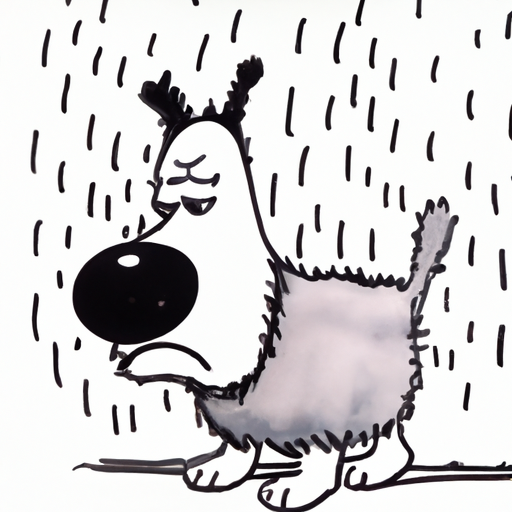Introduction
You’re familiar with the scenario. You’ve just given your furry little friend a bath, or maybe they’ve just returned from a blissful romp in the rain. Instead of the fresh, clean scent you might expect, you’re hit with a peculiar odor that is anything but pleasant. Yes, wet dog smell. But why do dogs stink when wet? Let’s dive in.
Understanding the Wet Dog Smell
First, let’s look at what’s happening under the fur. Dogs, like all animals, have bacteria and yeast living on their skin. These microorganisms excrete waste, which usually doesn’t smell that great.
When your dog gets wet:
- The water causes the bacteria and yeast to release a variety of compounds, like methane and volatile fatty acids.
- These compounds have a distinct and not particularly pleasant smell.
- The water also makes the smell more potent, as it evaporates and carries the odor molecules into the air.
Components of Wet Dog Smell
Let’s break down the smell into its components:
- Yeasty Smell: This comes from yeast that naturally lives on your dog’s skin.
- Earthy Smell: This comes from Actinobacteria, a type of bacteria that’s also found in soil.
- Musky Smell: This comes from the dog’s sebaceous glands, which secrete oil that coats the fur.
| Component | Source |
|---|---|
| Yeasty Smell | Yeast on Skin |
| Earthy Smell | Actinobacteria |
| Musky Smell | Sebaceous Glands |
How to Combat Wet Dog Smell
Don’t worry, there are ways to combat the wet dog smell. Here’s what you can do:
- Brush your Dog Regularly: This helps remove dead skin and hair, reducing the food source for bacteria and yeast.
- Use a Dog-Specific Shampoo: These are formulated to reduce bacteria and yeast on your dog’s skin.
- Dry your Dog Thoroughly: Water activates the smell, so the drier your dog, the less likely they are to stink.
How Certain Breeds are More Prone to Wet Dog Smell
Interestingly, not all dogs smell the same when wet. Breeds with more oil in their coats, like Basset Hounds and Cocker Spaniels, tend to have a stronger odor. Breeds with double coats, like the Siberian Husky, also seem to have a more potent smell when wet due to their denser fur trapping more of the odor-causing compounds.
FAQ
1. Why does my dog smell even after a bath?
Even after a thorough bath, some odor-causing bacteria and yeast may remain on your dog’s skin and fur. Using a dog-specific shampoo and thoroughly drying your dog can help minimize the smell.
2. Are there any health issues associated with a strong wet dog smell?
While a certain amount of “wet dog smell” is normal, a particularly strong or foul odor can indicate a skin infection or other health issue. If you’re concerned about your dog’s smell, it’s best to consult with a vet.
3. Can I use human shampoo on my dog?
No, human shampoo can disrupt the pH balance of your dog’s skin, leading to dryness, irritation, and an increase in smell-causing bacteria and yeast. It’s best to use a shampoo formulated specifically for dogs.



